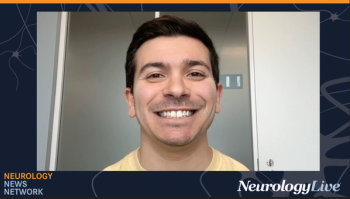
CSF Biomarkers and Alzheimer Disease: Ready for the Clinic?
Here: an update on the current state of CSF fluid-borne markers for Alzheimer disease and what they may portend.
What if you had a test that could tell you which patients would develop Alzheimer disease?
In an ideal world, people at risk could take preventative medicines to ward off the neurodegenerative memory-thief. But right now, there are 4 approved Alzheimer disease drugs that simply delay brain decline slightly; they’re not good for either prevention or cure. This may be because these agents are used too late. Many scientists and physicians believe that if applied earlier, current medications could have the most beneficial effects.
Could biomarkers in the clinic detect and prevent Alzheimer disease-- or will they simply bear a message of impending doom?
About 43% of people in the USA and Europe above age 85 have Alzheimer disease.1 It is not easy to idenitfy prodromal Alzheimer. Memory tests give some clues that there is hippocampal damage--a hallmark of the disease. But hippocampal problems and memory deficits also occur in other conditions, such as depression, substance abuse or other brain diseases.
A recent review article in Alzheimer’s and Dementia discusses the current state of cerebrospinal fluid-borne markers for Alzheimer disease.2 Tests that identify proteins in the CSF could be very specific to Alzheimer disease because the fluid directly interacts with brain tissue.3 According to first author, Kaj Blennow, MD, PhD, Professor of Clinical Neurochemistry at the Sahlgrenska University Hospital in Mölndal, Sweden, CSF is potentially better than blood since “a brain protein will be diluted in the larger blood volume, metabolized and degraded.” In addition, a clinical test using blood could also have problems, since “[Blood] serum/plasma is a much more complicated medium, with 250 times more other protein than CSF that will interfere in the assay.”
Currently researchers focus on candidate biomarkers found in the CSF of people with prodromal Alzheimer’s disease. These include the same proteins found in Alzheimer’s brain; the proposed culprits that cause brain cell death. Specifically, low CSF amyloid-beta (aka Abeta42), high total tau protein and phosphorylated tau measurements may show physicians that a patient is a risk. As far as which biomarker could be the best for diagnosis, Blennow states that the 3 markers are "equally good for diagnosis, but they tell us different things: Abeta42 reflects amyloid deposition in the brain and total-tau the intensity of neuronal degeneration; phospho-tau is related to tangle formation (but this is not that clear).”
Although other markers have been measured in CSF, some have only been identified in a single study, and levels of amyloid-beta, tau and phospho-tau are most consistently measured. Blennow explains “They have been evaluated in hundreds of papers and very consistently show that more than 85%-90% of AD (and prodromal AD) cases have low Abeta42 and high total-tau and phospho-tau.”
Levels of CSF amyloid-beta seem to decrease as post-mortem or biopsied brain levels increase, so it seems that the protein may deposit itself in the brain and while it correspondingly decreases in the fluid. CSF phosphorylated tau levels also correspond with the amount of neurofibrillary tangles found in a later autopsy. In addition, high levels of total tau in the CSF seem to indicate that mild cognitive impairment will quickly progress to full Alzheimer dementia. Unfortunately, the markers seem to be only good in the early stages of the disease. Blennow explains: “it seems that the AD biomarkers reach a plateau very early in disease progression, and thus do not change with progression.”
Researchers may have another problem with developing a clinical test: the methods being used are not the same in every lab. The development of consistent assays is a high current priority in this field. According to Dr Blennow “what is needed is more work on standardization, both the analytical part and assay production, so that we can get uniform values between labs. This is ongoing.” Once different labs agree on a universal test, clinical detection of Alzheimer in early stages may follow.
Newsletter
Keep your finger on the pulse of neurology—subscribe to NeurologyLive for expert interviews, new data, and breakthrough treatment updates.










